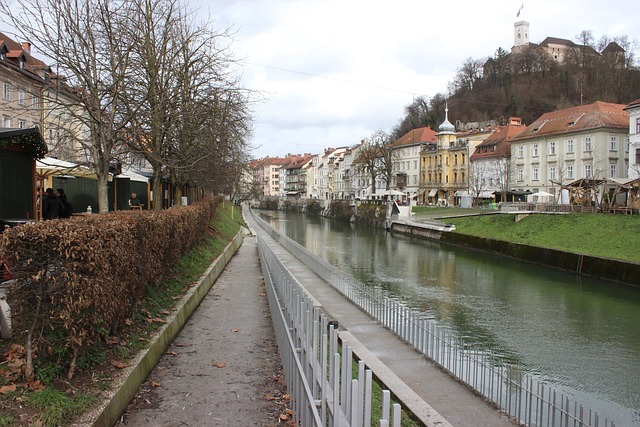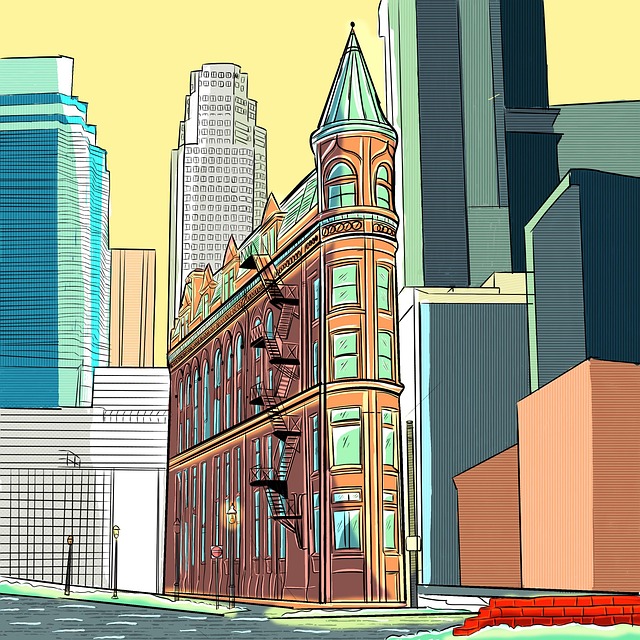Karachi's rapid urbanization poses significant waste management challenges, including inadequate collection systems, illegal dumping, lack of centralized processing, and complex terrain hindering disposal and recycling efforts. Low public awareness exacerbates these issues. A sustainable solution requires a multi-faceted approach combining government initiatives, community engagement, and innovative technologies tailored to the city's unique geography. Starting near Dalmia Road, smart technology, community-based programs, and public-private partnerships can optimize waste collection, reduce environmental degradation, and foster responsible disposal practices, setting a game-changing example for Karachi's cleaner future.
In the bustling metropolis of Karachi, efficient waste management is a complex challenge. This article delves into the intricacies of waste handling in the urban setting, focusing specifically on the Dalmia Road area. We explore the current state of waste disposal practices and examine innovative solutions that can lead to more sustainable outcomes. By highlighting community involvement and future strategies, we aim to foster a comprehensive approach to enhancing waste management in Karachi.
- Understanding Waste Management Challenges in Karachi's Urban Setting
- Current State of Waste Disposal Near Dalmia Road
- Innovative Solutions for Efficient Waste Management
- Community Involvement and Future Strategies for Sustainable Waste Handling
Understanding Waste Management Challenges in Karachi's Urban Setting

Karachi, as one of Pakistan’s most populous cities, faces unique challenges when it comes to waste management. The rapid urbanization and growing population have led to an increase in solid waste generation, straining existing infrastructure. Managing this waste effectively is crucial to maintaining a clean and healthy environment for its residents. The main issues include inadequate collection systems, illegal dumping sites, and the lack of a centralized processing facility.
These challenges are further exacerbated by the city’s diverse geography, with varied terrain making waste disposal and recycling efforts more complex. Karachi also struggles with a lack of public awareness and participation in proper waste segregation and disposal practices. Addressing these problems requires a multifaceted approach, involving government initiatives, community engagement, and innovative solutions to create a sustainable waste management system for this bustling metropolis.
Current State of Waste Disposal Near Dalmia Road

In Karachi, the current state of waste management near Dalmia Road reflects broader challenges faced by the city. The area, known for its dense population and commercial hubs, struggles with inefficient waste disposal methods that have led to environmental degradation and health hazards. Unmanaged dumping sites are a common sight, causing pollution and attracting vermin, which poses significant risks to nearby residents and the ecosystem.
The scenario is further complicated by the lack of proper segregation facilities for recyclables and organic waste. Most waste management efforts near Dalmia Road are ad-hoc, with limited government intervention or private sector participation in recycling and composting initiatives. This haphazard approach not only impacts the aesthetics of the area but also contributes to global environmental issues by increasing carbon emissions and reducing the city’s overall sustainability.
Innovative Solutions for Efficient Waste Management

In the bustling metropolis of Karachi, efficient waste management is a critical challenge that demands innovative solutions. The city’s diverse landscape, from residential areas to industrial hubs, requires tailored strategies for effective waste collection and disposal. One such solution lies in the adoption of smart technology, such as advanced sensors and IoT devices, to optimize garbage collection routes and schedules. These technologies can significantly reduce operational costs and minimize environmental impact by ensuring efficient use of resources.
Additionally, Karachi can leverage community-based initiatives and public-private partnerships to foster a culture of responsible waste disposal. Educating residents on proper segregation and recycling practices at the source is key. By promoting compostable materials and responsible consumption, the city can significantly reduce the volume of waste ending up in landfills. This holistic approach, combining technology with community engagement, offers promising prospects for transforming waste management near Dalmia Road and across Karachi into a more sustainable and efficient process.
Community Involvement and Future Strategies for Sustainable Waste Handling

In the vibrant city of Karachi, effective waste management is a collective responsibility that involves every citizen and community. Near Dalmia Road, local initiatives have shown promising results in improving sustainable waste handling practices. Community involvement plays a pivotal role in this transformation. Active participation from residents, along with collaboration between local authorities and non-governmental organizations (NGOs), has led to the establishment of recycling centers and enhanced street cleaning services. These efforts not only reduce the environmental impact but also create job opportunities within the community.
Looking ahead, future strategies should focus on expanding these successful models across Karachi. This includes promoting public awareness campaigns that educate citizens on proper waste segregation and disposal methods. Additionally, investing in advanced technology for recycling and waste-to-energy conversion can further revolutionize waste management. By fostering a culture of sustainability and innovation, Karachi can set an example for other metropolitan cities, ensuring a cleaner and healthier future for its residents.
The complex landscape of waste management in Karachi, as highlighted near Dalmia Road, demands innovative solutions and collective action. By addressing the current challenges and leveraging community involvement, it is feasible to foster a more sustainable and efficient waste handling system. Embracing eco-friendly practices and implementing cutting-edge technologies can revolutionize waste management in this bustling metropolis, ensuring a cleaner and healthier future for all Karachiites.
